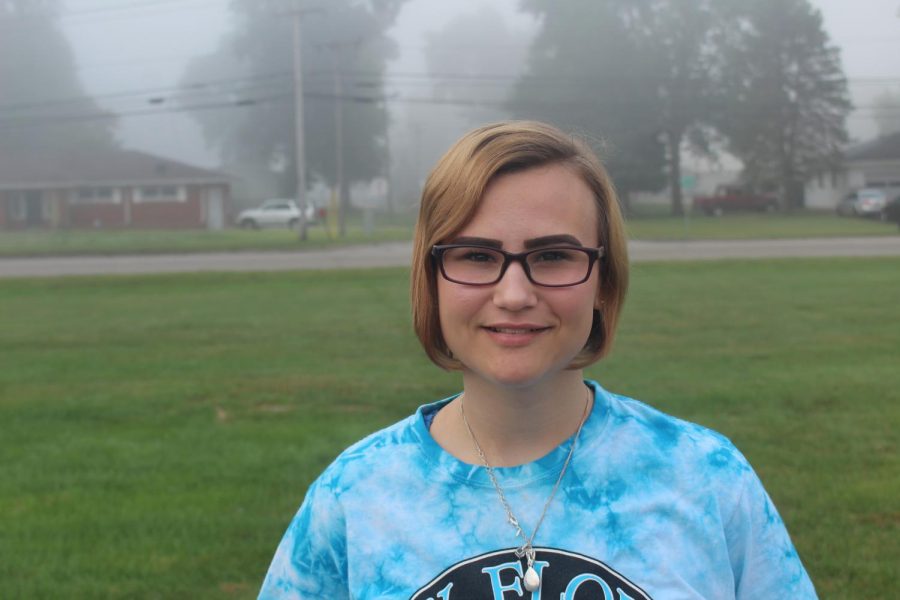Limiting abortion access can lead teenage girls to extreme measures
Staff writer Lyn Jarrell discusses how Indiana’s parental consent abortion laws are driving teenage girls to unsafe, illegal acts.
Sophomore Lyn Jarrell is a staff writer for Elkhart Memorial GENESIS who specializes in opinion and column writing.
November 6, 2019
The safest way to get an abortion is to go to a hospital, Planned Parenthood, or a local abortion clinic. However, not every woman has the option of privately going to their local Planned Parenthood or clinic.
According to Indiana state law, minors are not allowed to have an abortion without parental or guardian consent. However, 13 states (including the District of Columbia) do not require parental involvement.
This is a problem because by requiring consent from a legal guardian, some teenage girls end up being forced to raise an unwanted child, a task that many are not ready to handle.
When a teen is too scared to tell her family that she’s pregnant, she may consider abortion; only to find that due to Indiana state law, having an abortion is too far out of reach. That leads to teens feeling alone and scared.
Not feeling supported and not having access to safe and legal options to end an unwanted pregnancy can result in harmful and illegal actions for teen girls.
Some have actually been known to turn to illegal, often foreign websites in order to obtain abortion pills.
The problem with buying online foreign products, besides the illegal nature of it, is that most of the products are either in another language, making them unreadable, or sometimes the products do not come with the ingredients listed, creating a potentially dangerous situation for a desperate teenage girl.
But ordering illegal abortion pills off of the internet is not the most extreme measure a teen has gone to in her moment of desperation.
For example, according to an article by Nina Liss-Schultz, the managing editor of Mother Jones, one night in May 2009, a girl, who’s real name is not given, (in order to protect her identity), decided to run away from home while pregnant. She was 18 at the time.
She wanted to have an abortion, but she didn’t have an option that was safe. She met someone at a gas station and paid him to beat her up, in the hopes of having an abortion during that process.
When a woman is at that point of desperation, the thought of all the harm that they’d be causing for themselves, does not even cross their minds.
Young girls are going to extreme measures because they cannot legally get an abortion in privacy. This is a problem that needs to be addressed, but instead, states all over the country are actually making it more difficult for women of all ages to choose abortion.
States have even begun to limit the timeframe in which a woman can have an abortion. States such as Georgia, Kentucky, Louisiana, Missouri, Mississippi and Ohio, who only offer abortions as a legal choice until 8 weeks gestation, are infringing on the rights of women, specifically teenage girls.
According to The Huffington Post, an estimated 1 in 450 pregnant women don’t actually find out they are pregnant until at least their 20th week of pregnancy.
Not only that, but it is thought that as many as 1 in 2,500 women can be completely unaware of their pregnancies until they go into labor.
The limitations created by some state abortion laws can seriously have a negative impact on society.
In fact, it is statistically proven that teenage girls who were unable to have an abortion, and ended up giving birth and becoming a mother have many financial troubles, health risks, and oftentimes do not have support from the father of their child.
This forces teenage girls to become adults before they are ready. The responsibilities are relentless, and most of the time, teenage moms end up having to drop out of school.
Not only that, but, teenage girls who were unable to have an abortion, and had no other option but to give birth, can end up with major health concerns.
Teenage girls do not have the full development needed in order to give birth and remain healthy. Our bodies are not ready to bear children until later ages in life.
Countries such as France, Germany and Romania, offer abortions based on the request of someone who wants one. Europe also has a few European doctors who ship out abortion pills internationally.
While there is plenty of public opposition towards birth control, there isn’t much public opposition towards over-the-counter abortion pills.
With that being said, however, the use of abortion pills falls under the category of opposition towards abortions in general.
Most opposing arguments don’t specify which technique of abortion is acceptable or not, they do; however, argue that abortion is wrong, in all aspects.
Taking away the option of abortion is not going to stop women and teenage girls from attempting to have one. Not only that, but abortion is a personal decision, and it doesn’t affect anyone but the one who made the choice to have an abortion.
The fact is that, despite your personal opposition towards abortion, you do not get to decide if a teenage girl can or cannot have one. If there are risks, then the risks are for those who are considering abortion, to look over and then decide what they want to do. This is a matter of separating laws from ethics. They are not the same.
The views in this column do not necessarily reflect the views of the GENESIS staff. Email Lyn Jarrell at [email protected].








